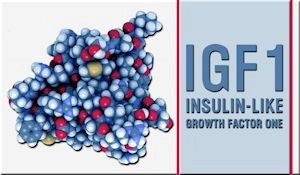Introduction
Mental health issues such as depression, anxiety, and other psychiatric disorders are increasingly recognized as significant public health concerns among American men. While psychological and social factors are often at the forefront of discussions about mental health, the role of endocrinology—specifically, the impact of hormonal imbalances—cannot be overlooked. This article explores how hormonal fluctuations influence mental health in American men, emphasizing the need for a holistic approach to treatment that includes endocrinological considerations.
The Link Between Hormones and Mental Health
Hormones play a crucial role in regulating mood, cognition, and overall mental well-being. In men, testosterone, cortisol, and thyroid hormones are particularly influential. Testosterone, often associated with masculinity, also affects mood regulation. Low levels of testosterone have been linked to increased rates of depression and anxiety. Similarly, cortisol, known as the stress hormone, can exacerbate mental health issues when chronically elevated. Thyroid hormones, which regulate metabolism, can also impact mood when imbalanced, leading to conditions like hypothyroidism, which is associated with depression.
Testosterone and Depression
Research has shown a significant correlation between low testosterone levels and depressive symptoms in men. A study published in the *Journal of Clinical Endocrinology & Metabolism* found that men with hypogonadism, a condition characterized by low testosterone, were more likely to experience depression. This connection suggests that testosterone replacement therapy (TRT) could be a viable treatment option for men with both low testosterone and depression. However, TRT should be approached cautiously, as it can have side effects and is not suitable for everyone.
Cortisol and Anxiety
Chronic stress leads to elevated cortisol levels, which can contribute to the development of anxiety disorders. In American men, who often face high levels of work-related stress, understanding the role of cortisol is crucial. Prolonged exposure to high cortisol can lead to changes in brain structure and function, particularly in areas responsible for mood regulation. Techniques such as mindfulness, exercise, and stress management can help mitigate the effects of cortisol on mental health.
Thyroid Hormones and Mood Disorders
Thyroid dysfunction, particularly hypothyroidism, is another hormonal imbalance that can affect mental health. Hypothyroidism can lead to symptoms such as fatigue, weight gain, and depression. In American men, thyroid issues may be underdiagnosed due to a lack of awareness and screening. Regular thyroid function tests can help identify and treat hypothyroidism, potentially alleviating associated mood disorders.
The Importance of Integrated Care
Given the complex interplay between hormones and mental health, an integrated approach to care is essential. American men should have access to healthcare providers who can assess both their hormonal and mental health status. Collaboration between endocrinologists and mental health professionals can lead to more effective treatment plans. For instance, a man experiencing depression might benefit from both psychotherapy and, if appropriate, hormone therapy.
Conclusion
The role of endocrinology in male mental health is a critical yet often overlooked aspect of comprehensive care. Hormonal imbalances, including those involving testosterone, cortisol, and thyroid hormones, can significantly impact mental well-being. American men, in particular, may benefit from increased awareness and screening for these imbalances. By integrating endocrinological assessments into mental health care, we can offer more personalized and effective treatments, ultimately improving the quality of life for men across the nation.
Contact Us For A Fast And Professional Response

- Optimizing Testosterone Levels: Clomiphene Citrate's Role in Treating Secondary Hypogonadism in American Men [Last Updated On: February 22nd, 2025] [Originally Added On: February 22nd, 2025]
- Evaluating hCG Monotherapy and Exogenous Testosterone in Treating Hypogonadotropic Hypogonadism in Young American Men [Last Updated On: February 25th, 2025] [Originally Added On: February 25th, 2025]
- Multimodal Endocrine Evaluation Crucial for Diagnosing Fatigue in American Men [Last Updated On: February 26th, 2025] [Originally Added On: February 26th, 2025]
- The Impact of Insulin Resistance on Male Hormonal Health: A Comprehensive Overview [Last Updated On: March 7th, 2025] [Originally Added On: March 7th, 2025]
- Optimizing Hormone Therapy: Vitamin D's Role in Androgen Metabolism and HRT Protocols [Last Updated On: March 8th, 2025] [Originally Added On: March 8th, 2025]
- Optimizing Men's Health: Hormonal Balance and Personalized Hormone Replacement Therapy [Last Updated On: March 9th, 2025] [Originally Added On: March 9th, 2025]
- Unveiling the Potential of Neurosteroid Modulation in Treating Stress-Related Endocrine Dysfunction in American Men [Last Updated On: March 12th, 2025] [Originally Added On: March 12th, 2025]
- Harnessing the Power of SARMs: A New Frontier in Treating Male Endocrine Disorders [Last Updated On: March 13th, 2025] [Originally Added On: March 13th, 2025]
- Exploring the Impact of Oxytocin in Male Endocrinology: From Physiology to Therapy [Last Updated On: March 15th, 2025] [Originally Added On: March 15th, 2025]
- Chronobiology's Impact on Male Hormone Rhythms and Clinical Management [Last Updated On: March 18th, 2025] [Originally Added On: March 18th, 2025]
- Essential Trace Elements' Impact on Male Hormone Health: Zinc, Selenium, Magnesium [Last Updated On: March 19th, 2025] [Originally Added On: March 19th, 2025]
- Mitochondrial Function and Male Hormone Production: Therapeutic Targets for Age-Related Decline [Last Updated On: March 19th, 2025] [Originally Added On: March 19th, 2025]
- Precision Medicine in Endocrinology: Tailoring HRT for American Males Using Genomic and Metabolomic Data [Last Updated On: March 19th, 2025] [Originally Added On: March 19th, 2025]
- Gut Microbiome's Impact on Steroid Hormone Metabolism in Men: An Endocrinological Perspective [Last Updated On: March 19th, 2025] [Originally Added On: March 19th, 2025]
- Metabolomics: Revolutionizing Male Endocrine Health Diagnosis and Personalized Care [Last Updated On: March 20th, 2025] [Originally Added On: March 20th, 2025]
- Pharmacogenomics Revolutionizes Hormone Therapy for Men: Personalized Treatment Insights [Last Updated On: March 20th, 2025] [Originally Added On: March 20th, 2025]
- Ghrelin Modulation Enhances Testosterone Therapy for Weight Management in Hypogonadal Men [Last Updated On: March 21st, 2025] [Originally Added On: March 21st, 2025]
- Inflammaging and Endocrine Senescence: Impact on Male Hormonal Health and Optimization Strategies [Last Updated On: March 21st, 2025] [Originally Added On: March 21st, 2025]
- Adipokines in Male Endocrinology: Testosterone, Insulin Sensitivity, and Therapeutic Insights for American Men [Last Updated On: March 21st, 2025] [Originally Added On: March 21st, 2025]
- Pituitary Incidentalomas in Men: Endocrine Evaluation and Management Guidelines [Last Updated On: March 21st, 2025] [Originally Added On: March 21st, 2025]
- Endocrine Disrupting Chemicals: Impact on Male Health and Mitigation Strategies [Last Updated On: March 22nd, 2025] [Originally Added On: March 22nd, 2025]
- Thyroid-Testicular Axis: Impact on Male Reproductive Health and Management Strategies [Last Updated On: March 22nd, 2025] [Originally Added On: March 22nd, 2025]
- Understanding Male Climacteric Syndrome: Diagnosis, HRT, and Endocrinology's Role [Last Updated On: March 22nd, 2025] [Originally Added On: March 22nd, 2025]
- Optimizing Bone Health in Men on HRT: Importance and Protocols for BMD Monitoring [Last Updated On: March 22nd, 2025] [Originally Added On: March 22nd, 2025]
- Longitudinal Epigenetic Changes from Hormone Replacement Therapy in American Men [Last Updated On: March 22nd, 2025] [Originally Added On: March 22nd, 2025]
- Managing Prostate Health During TRT: Risk Stratification and Monitoring Protocols [Last Updated On: March 23rd, 2025] [Originally Added On: March 23rd, 2025]
- Somatostatin Analogues: Versatile Applications in Male Endocrinology and Beyond [Last Updated On: March 23rd, 2025] [Originally Added On: March 23rd, 2025]
- Multimarker Cardiometabolic Risk Assessment for American Males on HRT [Last Updated On: March 23rd, 2025] [Originally Added On: March 23rd, 2025]
- Managing Polycythemia in Men on Testosterone Replacement Therapy: Monitoring and Strategies [Last Updated On: March 23rd, 2025] [Originally Added On: March 23rd, 2025]
- Endocrine Reserve Testing in Men: Applications, Limitations, and Clinical Best Practices [Last Updated On: March 24th, 2025] [Originally Added On: March 24th, 2025]
- Vasopressin's Role in Male Endocrinology: Therapeutic Applications and Future Research [Last Updated On: March 24th, 2025] [Originally Added On: March 24th, 2025]
- Biomarkers in Male Endocrinology: Growth Factors, Cytokines, and Clinical Applications [Last Updated On: March 24th, 2025] [Originally Added On: March 24th, 2025]
- Strategic Hormone Optimization to Combat Sarcopenia in Aging American Males [Last Updated On: March 24th, 2025] [Originally Added On: March 24th, 2025]
- OSA in American Men: Beyond Testosterone, Impacting Multiple Endocrine Systems [Last Updated On: March 24th, 2025] [Originally Added On: March 24th, 2025]
- Androgen Receptor Sensitivity: Personalizing Hormone Therapy for American Men's Health [Last Updated On: March 24th, 2025] [Originally Added On: March 24th, 2025]
- Male Biological Clock: Endocrine Impacts on Fertility and Offspring Health [Last Updated On: March 24th, 2025] [Originally Added On: March 24th, 2025]
- Energy Balance and Reproductive Health: Neuroendocrine Integration in American Men [Last Updated On: March 24th, 2025] [Originally Added On: March 24th, 2025]
- Post-Traumatic Hypopituitarism in American Men: Diagnosis, Treatment, and Lifestyle Management [Last Updated On: March 24th, 2025] [Originally Added On: March 24th, 2025]
- Exercise and Endocrinology: Optimizing Hormonal Health in American Men [Last Updated On: March 25th, 2025] [Originally Added On: March 25th, 2025]
- Managing HPT Axis Recovery in American Men Post-Testosterone Therapy: Clinical Strategies [Last Updated On: March 25th, 2025] [Originally Added On: March 25th, 2025]
- Leptin Resistance in Men: Endocrine Effects and Targeted Management Strategies [Last Updated On: March 25th, 2025] [Originally Added On: March 25th, 2025]
- NAFLD and Male Endocrine Health: Bidirectional Impacts and Management Strategies [Last Updated On: March 26th, 2025] [Originally Added On: March 26th, 2025]
- HRT and Telomere Length: Implications for Aging in American Men [Last Updated On: March 26th, 2025] [Originally Added On: March 26th, 2025]
- Male Hormonal Health and Cognitive Function: The Role of Hormone Replacement Therapy [Last Updated On: March 26th, 2025] [Originally Added On: March 26th, 2025]
- Diurnal Testosterone Fluctuations: Implications for Diagnosis and Hormone Therapy in Men [Last Updated On: March 26th, 2025] [Originally Added On: March 26th, 2025]
- Endocrine Frailty in Aging Men: Multimodal Interventions and Preventive Care Strategies [Last Updated On: March 26th, 2025] [Originally Added On: March 26th, 2025]
- Androgen Therapy's Role in Managing Autoimmune Diseases in Men: A Clinical Perspective [Last Updated On: March 26th, 2025] [Originally Added On: March 26th, 2025]
- Neuropeptide Y: Key Regulator of Male Endocrine and Metabolic Health [Last Updated On: March 26th, 2025] [Originally Added On: March 26th, 2025]
- Free vs. Total Hormones: Key to Accurate Male Endocrinology Diagnosis and Treatment [Last Updated On: March 27th, 2025] [Originally Added On: March 27th, 2025]
- Endocannabinoid System's Role in Male Reproductive Endocrinology: Insights and Therapeutic Potential [Last Updated On: March 27th, 2025] [Originally Added On: March 27th, 2025]
- Luteinizing Hormone: Key to Male Endocrinology and Fertility Management [Last Updated On: March 27th, 2025] [Originally Added On: March 27th, 2025]
- Genetic Insights and Personalized Treatments for Male Hypogonadism [Last Updated On: March 27th, 2025] [Originally Added On: March 27th, 2025]
- Subclinical Endocrinopathies in American Men: Diagnosis, Treatment, and Impact [Last Updated On: March 27th, 2025] [Originally Added On: March 27th, 2025]
- INSL3: A Stable Biomarker for Leydig Cell Function and Male Health [Last Updated On: March 27th, 2025] [Originally Added On: March 27th, 2025]
- SHBG's Impact on Male Health: Hormonal Balance, Diagnosis, and Aging [Last Updated On: March 27th, 2025] [Originally Added On: March 27th, 2025]
- Endocrine Sequelae of TBI in Men: Long-Term Management and Follow-Up Strategies [Last Updated On: March 28th, 2025] [Originally Added On: March 28th, 2025]
- Opioid-Induced Endocrinopathy in Men: Mechanisms, Diagnosis, and Management Strategies [Last Updated On: March 29th, 2025] [Originally Added On: March 29th, 2025]
- AMH's Role in Male Endocrinology: From Infertility to Cancer Diagnostics [Last Updated On: March 29th, 2025] [Originally Added On: March 29th, 2025]
- Chemotherapy's Impact on Male Endocrine Function: Monitoring and Intervention Strategies [Last Updated On: March 30th, 2025] [Originally Added On: March 30th, 2025]
- Inhibin B: Key Biomarker for Assessing Male Fertility and Endocrine Health in America [Last Updated On: March 30th, 2025] [Originally Added On: March 30th, 2025]
- Radiation-Induced Hypopituitarism in Men: Patterns, Diagnosis, and Hormone Therapy [Last Updated On: March 30th, 2025] [Originally Added On: March 30th, 2025]
- Hemochromatosis in American Men: Endocrine Effects, Screening, and Management Strategies [Last Updated On: April 1st, 2025] [Originally Added On: April 1st, 2025]
- Osteoporosis in Men: Primary, Secondary Types, Endocrine Evaluations, and Treatment Options [Last Updated On: April 5th, 2025] [Originally Added On: April 5th, 2025]
- Chronic Kidney Disease: Impacts and Management of Male Endocrine Function [Last Updated On: April 5th, 2025] [Originally Added On: April 5th, 2025]
- Hyperparathyroidism's Impact on Male Reproductive Health: Diagnosis and Management Strategies [Last Updated On: April 5th, 2025] [Originally Added On: April 5th, 2025]
- Hormonal Dynamics in Male Stress Urinary Incontinence: Insights and Therapeutic Approaches [Last Updated On: April 7th, 2025] [Originally Added On: April 7th, 2025]
- Managing Male Sexual Desire Disorders: Hormonal, Psychological, and Therapeutic Approaches [Last Updated On: April 8th, 2025] [Originally Added On: April 8th, 2025]
- Optimizing GH and IGF-1 in Male Athletes: Performance, Health, and Ethics [Last Updated On: April 8th, 2025] [Originally Added On: April 8th, 2025]
- Adrenal Incidentalomas in American Men: Evaluation, Management, and Long-term Monitoring [Last Updated On: April 10th, 2025] [Originally Added On: April 10th, 2025]
- Cushing's Syndrome in Men: Clinical Features, Diagnosis, and Management Strategies [Last Updated On: April 10th, 2025] [Originally Added On: April 10th, 2025]
- HRT and Male Fertility: Current Practices and Future Innovations for American Men [Last Updated On: April 10th, 2025] [Originally Added On: April 10th, 2025]
- Androgen Action: Molecular Insights and Endocrine Therapy Advances for American Men [Last Updated On: April 11th, 2025] [Originally Added On: April 11th, 2025]
- Enhancing Endocrine Resilience in Men: Hormones, Lifestyle, and Health Strategies [Last Updated On: April 11th, 2025] [Originally Added On: April 11th, 2025]
- Hormone Therapy Protocols for Transgender Men: Endocrinology for American Males [Last Updated On: April 12th, 2025] [Originally Added On: April 12th, 2025]
- Male Hormonal Contraception: Endocrine Mechanisms and Clinical Progress in American Males [Last Updated On: April 13th, 2025] [Originally Added On: April 13th, 2025]
- Digital Biomarkers Revolutionizing Hormone Therapy in American Men's Endocrinology [Last Updated On: April 14th, 2025] [Originally Added On: April 14th, 2025]
- AI-Driven Precision Endocrinology: Personalized Hormone Therapy for Men's Health [Last Updated On: April 14th, 2025] [Originally Added On: April 14th, 2025]
- Validating and Implementing PROMs in Male Endocrinology for American Men's Health [Last Updated On: April 15th, 2025] [Originally Added On: April 15th, 2025]
- Integrative Endocrinology: Enhancing Men's Hormonal Health with Holistic and Conventional Therapies [Last Updated On: April 15th, 2025] [Originally Added On: April 15th, 2025]
- Telehealth Revolutionizes Hormone Replacement Therapy Management for American Men [Last Updated On: April 16th, 2025] [Originally Added On: April 16th, 2025]
















